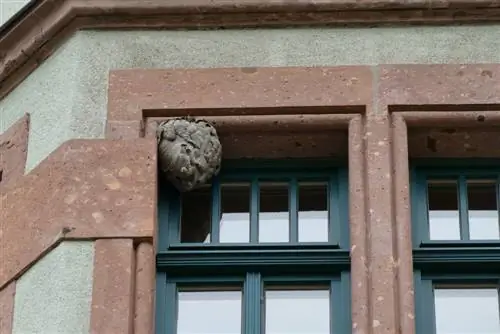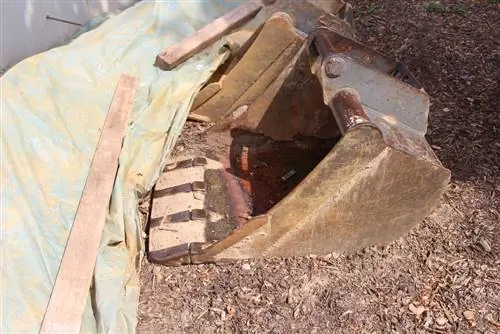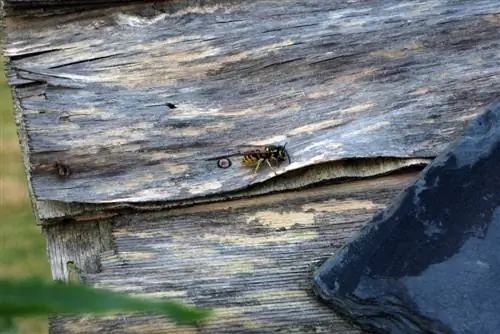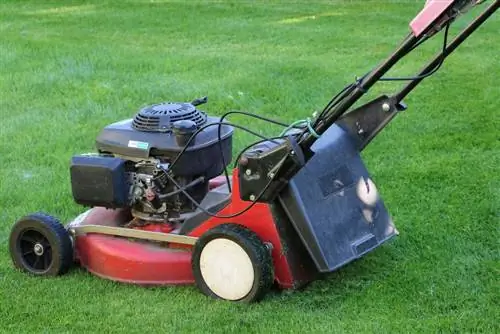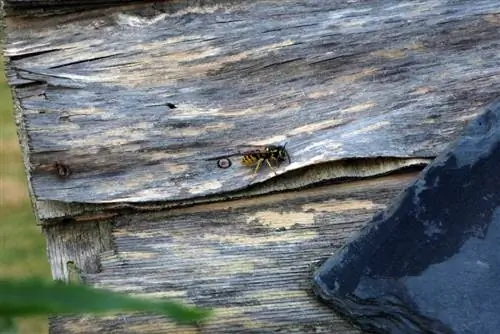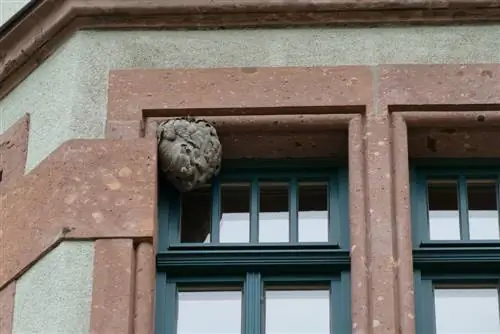- Author admin caroline@plants-knowledge.com.
- Public 2023-12-17 03:39.
- Last modified 2025-01-24 12:45.
Wasps, even if we don't like them, are among the beneficial insects. There are several hundred species, but only 11 form states. In Germany it is usually the common wasp and the German wasp that cause problems for us in the warm season. Because the wasps also like grilled food or sweet dishes.
Wasp nest
The wasp's nest is the home of colony-forming species. It is therefore not surprising that the insects defend their “house” against attacks and intruders, because the young queens, which ensure the survival of the species in the coming year, also develop there. The queen starts building a wasp nest in the spring. She builds around ten to twenty honeycombs in a suitable location, from which the first workers soon hatch. They continue to expand the nest and look after the larvae. Over the course of the summer, the colony grows to three to four thousand wasps. And these then become a nuisance in late summer because they are looking for sweets. If the temperatures get cooler, the entire colony dies except for the young queen, who goes looking for a suitable place for the nest again in the spring.
Locations
Wasps like it to be as dry and dark as possible. In the wild, for example, this is a hollow tree trunk. In the human living area, the following places are optimal for the queen wasp to build nests:
- Attics
- Shed
- Partition walls
- rain gutters
- House walls
- Nooks and crannies under the roof
- Roller shutter boxes
- That's why the expert also differentiates between:
- free-hanging wasp nests
- Wasp nests under the roof or in the attic
- Wasp nests in the roller shutter box
Remove
If you have discovered a wasp nest near your house, you should under no circumstances remove it yourself or even destroy it, because wasps are protected in Germany. In addition, the danger posed by an aggressive wasp colony - after all, it is your home - should not be underestimated. That's why you should
- don't poke around in the hornet's nest
- don't try to block the entry holes
- don't try to drive away the wasps with smoke or something similar
- don't try to poison the wasps
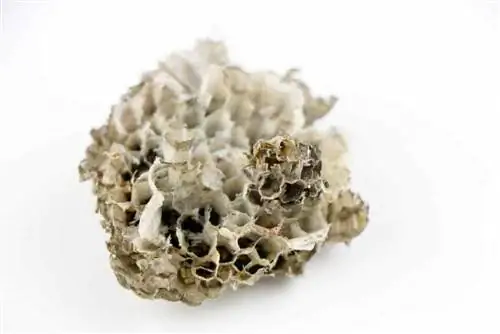
Since wasps are protected in Germany, if the worst comes to the worst, the population is primarily relocated and not destroyed. However, this only applies if there is an objective threat. This means that there is a danger for children, allergy sufferers or people with limited mobility. If this is the case, you can apply for a permit from the nature conservation authority. The nest can therefore only be removed once this has been approved.
Tip:
“Danger imminent” is the exception to having a nest removed immediately. However, you must provide valid reasons for this.
Request help
To protect yourself, you should not remove the wasp nest yourself, but rather request professional help. If you are now thinking of the fire department, you are wrong, because they are only responsible for removing wasp nests in exceptional cases. These include:
- acute danger to people in public areas
- Hospitals, retirement homes and daycare centers
A beekeeper, an exterminator or a nature conservation organization are the right contacts for relocating or removing wasp nests in private areas. They have the professional equipment and can also deal with the insects properly. The fire brigade will only help in the private sector if it can be proven that the nest needs to be removed as quickly as possible and there is no alternative, such as a professional pest controller. Another requirement for the fire service is that the wasps cannot be kept in check until a specialist arrives.
Tip:
However, since many pest controllers offer a 24/7 emergency service, “inaccessibility” is usually not a reason for calling in the fire department.
Costs
The cost of removing the wasp nest depends on various factors:
- Size of the nest
- Location of the nest (difficult or easy to access)
- Removal effort
As a guideline, costs are between 130 and 350 euros (pest control) and around 100 euros for relocation by an environmental protection organization. If a roofer has to be called in for hard-to-reach areas, the costs will increase. If a ladder is not enough to get to the nest, then additional costs will also apply, such as for access platforms.
Tip:
For rental properties, the landlord usually has to cover the costs of removing the wasp nest. Therefore, you should inform him immediately if you have discovered a wasp nest.

